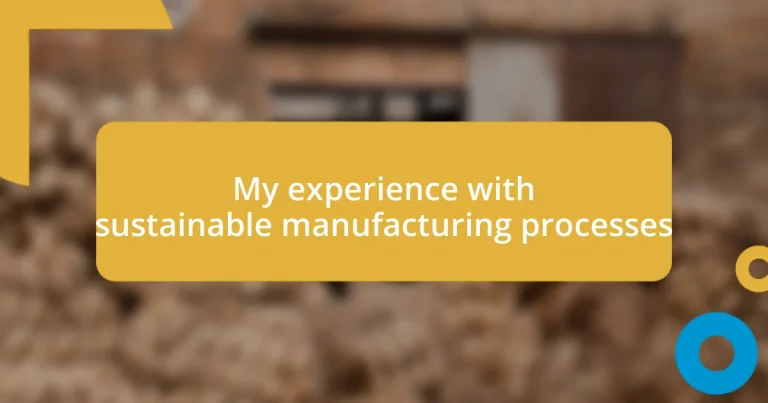Key takeaways:
- Sustainable manufacturing focuses on minimizing environmental impact while improving efficiency, emphasizing the entire lifecycle of products.
- Key techniques include lean manufacturing, advanced materials, and automation/IoT, which enhance resource optimization and reduce waste.
- Challenges encompass high initial costs, supply chain complexities, and the need for employee engagement; however, future opportunities lie in circular manufacturing and AI innovations.
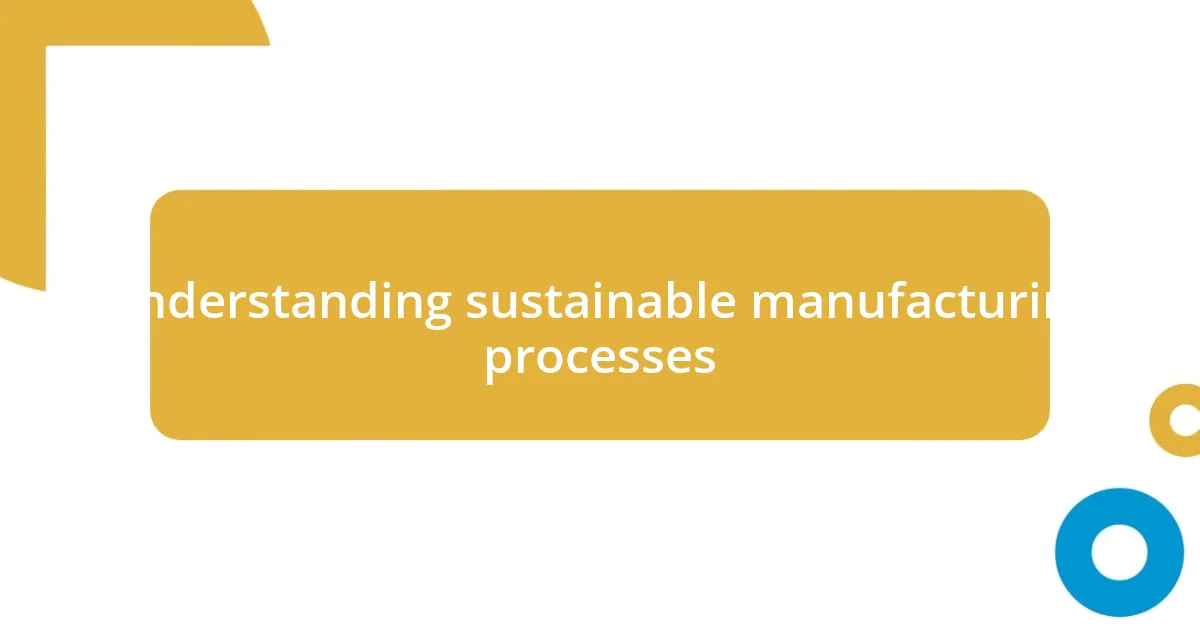
Understanding sustainable manufacturing processes
Sustainable manufacturing processes are all about creating products in a way that minimizes environmental impact while ensuring efficiency and quality. I recall my first experience visiting a plant that practiced these processes; the contrast with traditional manufacturing was striking. It really opened my eyes to how even small changes, like using renewable energy sources, can make a significant difference.
Have you ever considered why some companies choose sustainable practices while others don’t? From my perspective, it often comes down to a combination of ethics, consumer demand, and long-term profitability. I remember discussing this with a business owner who shifted to sustainable materials; he expressed how it wasn’t just about doing the right thing but also about making a smart business move in a market that increasingly values sustainability.
Another aspect that fascinates me is the emphasis on lifecycle thinking in sustainable manufacturing. Instead of focusing solely on production, companies are examining the entire lifespan of a product—from raw material extraction to disposal—for environmental consequences. I found it truly enlightening when I learned how a manufacturer redesigned their product for easier recycling, allowing consumers to feel more empowered about their choices. How can we support such innovations in our everyday lives? That’s a question worth pondering.
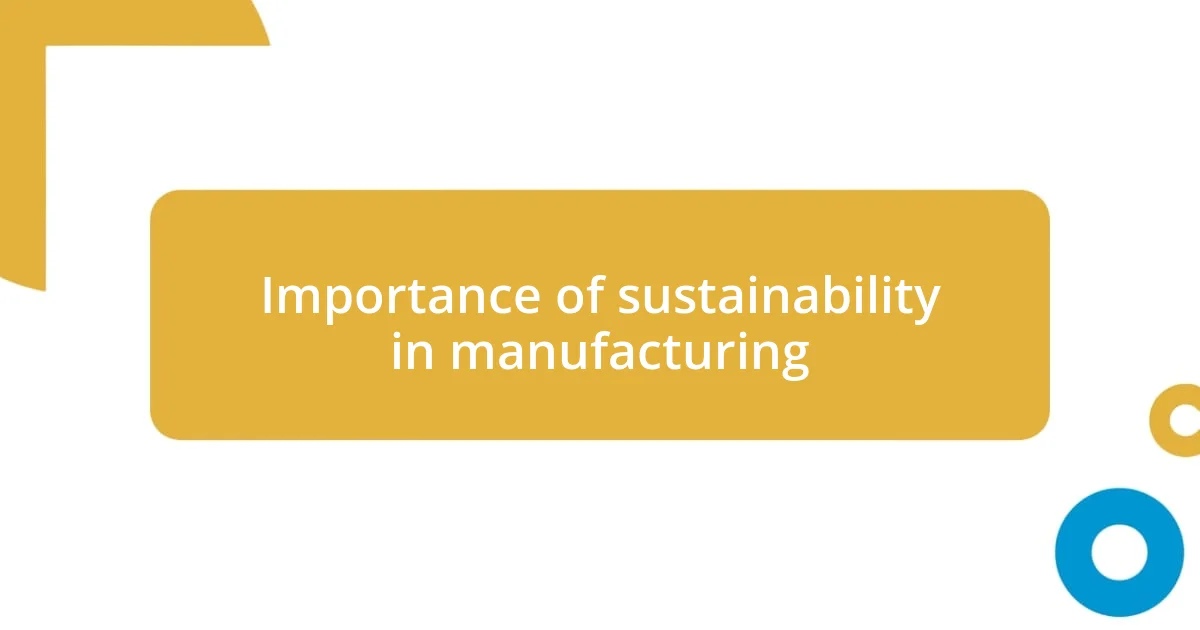
Importance of sustainability in manufacturing
Sustainability in manufacturing is not just a trend; it’s an essential shift towards a healthier planet and a more responsible way of producing goods. I vividly remember a conversation I had with an engineer who worked on a project that aimed to reduce waste in the production line. He expressed how every little improvement—which could seem insignificant at first—ultimately contributes to a larger vision of sustainability. It felt empowering to see how collective efforts can lead to meaningful change.
Here’s why I believe sustainability is paramount in manufacturing:
- It significantly reduces waste, leading to lower disposal costs.
- Companies that embrace sustainable practices often see improved brand loyalty among eco-conscious consumers.
- Utilizing renewable resources helps minimize energy costs over time, benefiting the bottom line.
- Sustainable manufacturing processes foster innovation, encouraging companies to think creatively about their production methods.
- There’s a growing regulatory push towards sustainability, making it a necessity for long-term compliance.
- It plays a vital role in preserving natural resources for future generations, ensuring our planet remains viable.
Reflecting on my own manufacturing journey, I’m often reminded of how these practices not only help the environment but also ultimately lead to a more resilient business model.
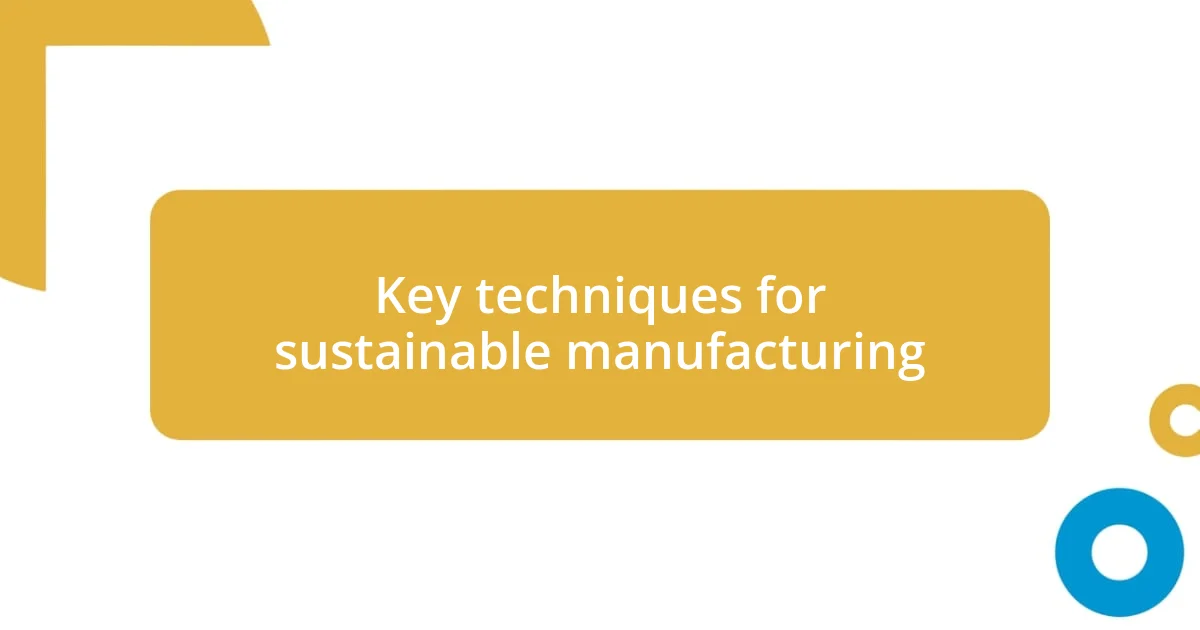
Key techniques for sustainable manufacturing
Sustainable manufacturing techniques have evolved significantly, and some truly stand out. One technique that caught my attention is the implementation of lean manufacturing principles. I remember visiting a factory that optimized its processes to minimize waste, which not only reduced costs but also enhanced productivity. It’s remarkable how a focus on efficiency can align perfectly with sustainability goals.
Another key approach is the use of advanced materials, such as biodegradable plastics or recycled metals. This aspect hit home for me when I learned about a local startup that developed packaging made entirely from plant-based materials. The excitement among consumers reflected their appreciation for innovation that cared for the planet. Seeing tangible products born from sustainable practices made me realize how powerful this shift can be.
Lastly, integrating automation and smart technologies is transforming the landscape of sustainable manufacturing. I experienced firsthand how a factory’s use of IoT sensors led to real-time monitoring of resource usage, dramatically reducing waste. It’s fascinating to think about the future of manufacturing, where data-driven decisions could consistently enhance sustainability practices.
| Technique | Description |
|---|---|
| Lean Manufacturing | Focuses on minimizing waste and maximizing efficiency, leading to cost reductions and sustainability. |
| Advanced Materials | Utilizes biodegradable or recycled materials to lessen environmental impact and engage eco-conscious consumers. |
| Automation and Smart Technologies | Employs IoT and data analytics for real-time monitoring to optimize resource usage and reduce waste. |
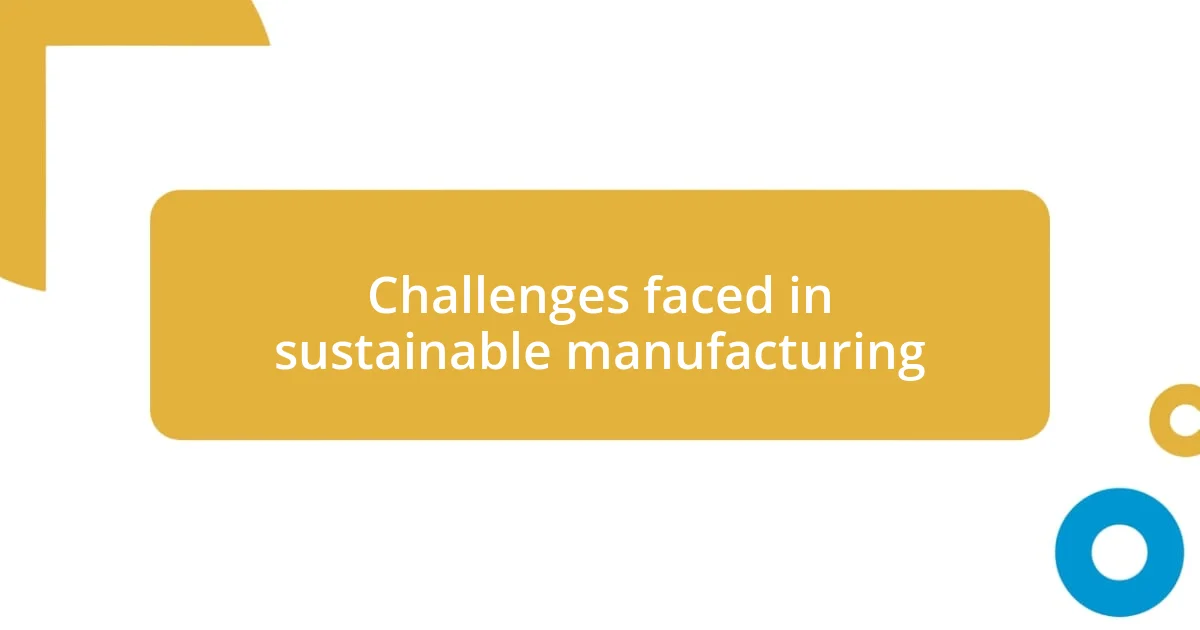
Challenges faced in sustainable manufacturing
Implementing sustainable manufacturing processes is not without its hurdles. I recall a meeting with a production manager who was frustrated by the high initial costs associated with upgrading machinery to more energy-efficient models. It made me realize that while the long-term savings are promising, the upfront investment can be a significant barrier for many companies, especially smaller ones. Isn’t it ironic that we often need to spend more to save money in the long run?
Another challenge that often surfaces is the complexity of supply chains. In my experience, sourcing sustainable materials can feel like navigating a maze. I once worked with a supplier who claimed to provide eco-friendly products, only to discover later that their practices weren’t as green as advertised. This kind of situation raises an important question: How do we ensure transparency in sustainability claims? The lack of standardized measures can lead to eco-washing, where companies market themselves as sustainable without the backing to support it.
Moreover, employee training plays a critical role in the success of sustainable initiatives. I vividly remember when my organization rolled out new sustainability practices, and some team members were resistant to the change. It was a reminder of how crucial it is to foster a culture that embraces sustainability. For businesses to truly thrive in this new era, everyone must be on board. How can we motivate and educate individuals to become passionate advocates for sustainable practices? The answers lie in effective communication and consistent engagement, which I believe is essential for a successful transition.
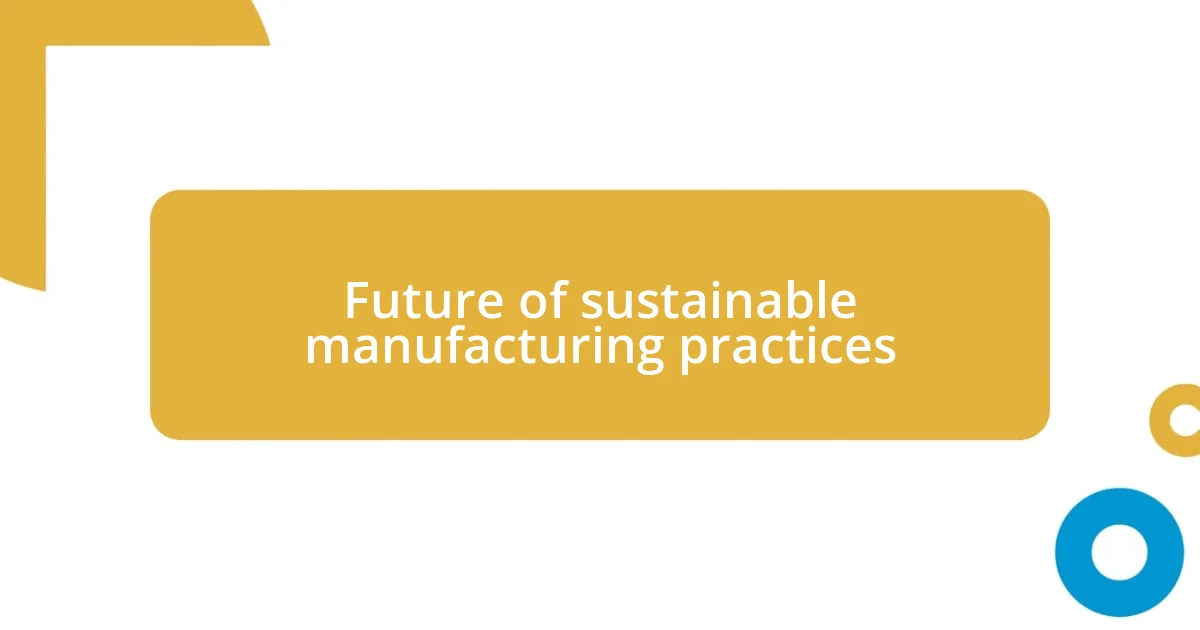
Future of sustainable manufacturing practices
As I look ahead, I can’t help but feel optimistic about the rise of circular manufacturing models. Recently, I visited a facility that had adopted a closed-loop system, where waste materials from one process became the raw materials for another. It was eye-opening to see how they not only minimized waste but also created a new revenue stream. Isn’t it exhilarating to think about how we can redefine waste as a resource?
The use of artificial intelligence in sustainable manufacturing is another area where I see vast potential. I encountered a team of engineers who used AI algorithms to predict equipment failures before they happened. This proactive approach not only saved costs but also reduced downtime, demonstrating that smart technology can align economic benefits with sustainability goals. It raised an interesting question for me: How much more efficient could the industry become if we all embraced such innovations?
Looking at the future of sustainable manufacturing, I also recognize the increasing role of consumer demand. My own shopping habits have shifted towards choosing brands that prioritize eco-friendly practices. I’ve felt a sense of empowerment every time I select a product that aligns with my values. What if more consumers began to speak with their wallets? This shift could pressure companies to adopt practices that prioritize the planet over profits, shaping a future where sustainability isn’t just an option, but a necessity.












